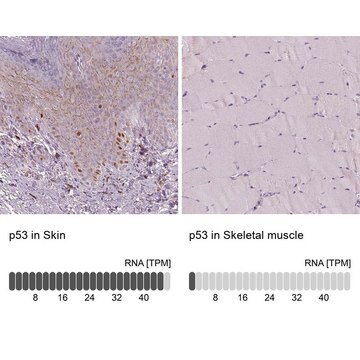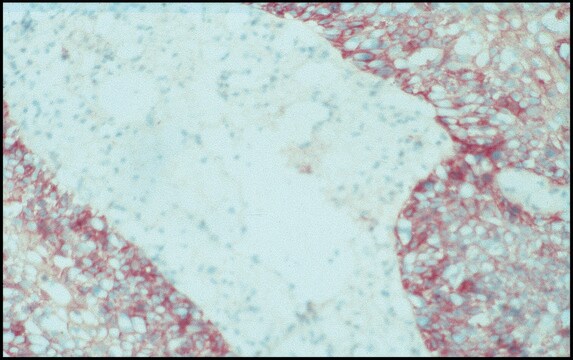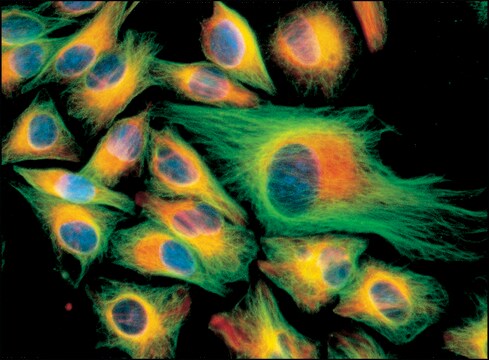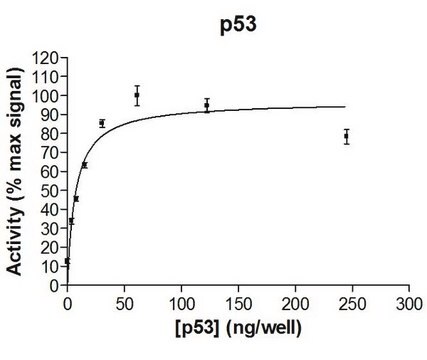Wichtige Dokumente
P8999
Monoclonal Anti-p53 in Maus hergestellte Antikörper
clone DO-7, purified from hybridoma cell culture
Synonym(e):
Anti-TRP53, Anti-Transformation-related protein 53
About This Item
Empfohlene Produkte
Biologische Quelle
mouse
Qualitätsniveau
Konjugat
unconjugated
Antikörperform
purified immunoglobulin
Antikörper-Produkttyp
primary antibodies
Klon
DO-7, monoclonal
Form
buffered aqueous solution
Mol-Gew.
antigen ~53 kDa
Speziesreaktivität
human
Konzentration
~2 mg/mL
Methode(n)
immunocytochemistry: suitable
immunohistochemistry: suitable
immunoprecipitation (IP): suitable
indirect ELISA: suitable
western blot: 0.1-0.2 μg/mL using human A431
Isotyp
IgG2b
UniProt-Hinterlegungsnummer
Versandbedingung
dry ice
Lagertemp.
−20°C
Posttranslationale Modifikation Target
unmodified
Angaben zum Gen
human ... TP53(7157)
Suchen Sie nach ähnlichen Produkten? Aufrufen Leitfaden zum Produktvergleich
Allgemeine Beschreibung
Anwendung
- immunoblotting
- enzyme linked immunosorbent assay (ELISA)
- immunocytochemistry
- immunohistochemistry
- immunoprecipitation
Biochem./physiol. Wirkung
Physikalische Form
Haftungsausschluss
Sie haben nicht das passende Produkt gefunden?
Probieren Sie unser Produkt-Auswahlhilfe. aus.
Empfehlung
Ähnliches Produkt
Lagerklassenschlüssel
10 - Combustible liquids
WGK
WGK 3
Flammpunkt (°F)
Not applicable
Flammpunkt (°C)
Not applicable
Persönliche Schutzausrüstung
Eyeshields, Gloves, multi-purpose combination respirator cartridge (US)
Hier finden Sie alle aktuellen Versionen:
Besitzen Sie dieses Produkt bereits?
In der Dokumentenbibliothek finden Sie die Dokumentation zu den Produkten, die Sie kürzlich erworben haben.
Artikel
p53 regulates gene expression, cell cycle control and functions as a tumor suppressor. Inactivation of p53 is closely tied to cancer development.
Cancer stem cell media, spheroid plates and cancer stem cell markers to culture and characterize CSC populations.
Unser Team von Wissenschaftlern verfügt über Erfahrung in allen Forschungsbereichen einschließlich Life Science, Materialwissenschaften, chemischer Synthese, Chromatographie, Analytik und vielen mehr..
Setzen Sie sich mit dem technischen Dienst in Verbindung.








